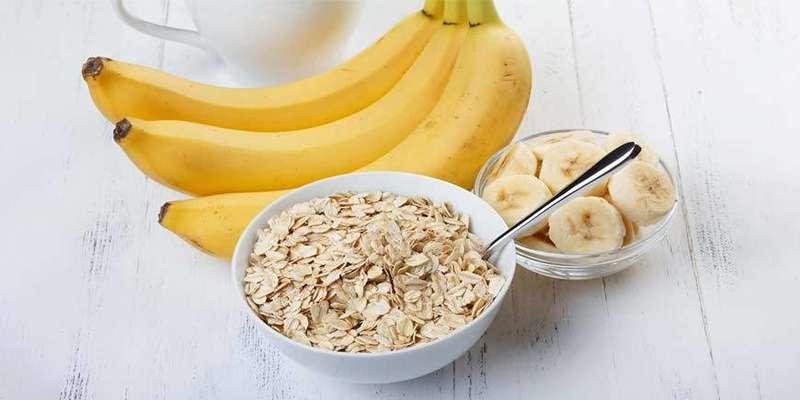Are you looking to upgrade your gut health game? Probiotics are an integral part of keeping our digestive system in top condition. Today, more and more people are incorporating probiotic-rich foods into their diets for the multiple benefits they bring. From aiding digestion to enhancing immunity, we can obtain a host of advantages from regularly consuming these superfoods - so let’s explore the world of probiotics! In this blog post, we will be taking a look at all there is to know about the wonders of probiotics and how they fit into a healthy diet.
What Are Probiotics & How Do They Work in Our Bodies?

Probiotics are beneficial bacteria that live in our digestive systems. These little organisms aid the digestion of food and promote the absorption of essential vitamins, minerals and nutrients from the foods we eat. They also work to keep harmful pathogens at bay by maintaining a healthy balance of microbes within the gut. Additionally, probiotic bacteria help to break down complex carbohydrates, producing short-chain fatty acids such as butyrate that have been linked to the health benefits of probiotics.
What Foods Contain Probiotics?
There are many foods which contain live and active cultures of probiotic bacteria. These include yoghurt, kefir, fermented vegetables like kimchi and sauerkraut, tempeh, miso soup and kombucha. Probiotic supplements are also available in the form of capsules and tablets.
How Do Probiotics Benefit Our Health?
- Promoting Digestive Health: Probiotics help to break down food more efficiently, aiding digestion and reducing bloating.
- Enhancing Immune System: Consuming probiotic foods can help boost the immune system by increasing the number of good bacteria in our intestines which fight off bad bacteria and viruses.
- Improving Skin Health: By restoring the balance of bacteria in the gut, probiotics can help clear up skin problems such as acne and eczema.
- Reducing Stress: Studies have shown that regular consumption of probiotic foods can reduce levels of cortisol, a hormone associated with stress.
- Improving Heart Health: A healthy gut is linked to a healthier heart. Probiotics can help reduce cholesterol and inflammation in the body, resulting in reduced risk of cardiovascular disease.
Best Sources of Probiotics to Eat & Supplement:

When it comes to getting the most out of your probiotic intake, it’s best to focus on incorporating natural food sources into your diet as much as possible. Here are some of the best probiotic-rich foods:
- Yogurt: Plain, unsweetened yogurt is a great source of probiotics and can be easily added to smoothies, cereal or enjoyed on its own as a snack.
- Kefir: This fermented milk drink is packed with probiotics and other beneficial bacteria. Enjoy it cold or warm for a delicious breakfast or mid-afternoon treat!
- Kimchi: A traditional Korean dish made from fermented vegetables such as cabbage and radish, kimchi is a delicious way to get your probiotic fix.
- Sauerkraut: This German-style fermented cabbage dish is full of beneficial bacteria that can help improve digestion and immunity.
- Tempeh: Made from fermented soybeans, tempeh contains live probiotics and is a great vegetarian alternative to meat.
- Miso Soup: This traditional Japanese soup is made from fermented soybeans and contains probiotics as well as other essential vitamins and minerals.
- Kombucha: This fermented tea drink is full of beneficial bacteria, making it a great choice for those looking to improve their gut health.
Natural food sources of probiotics, there are also many dietary supplements available in the form of capsules and tablets. These can be a great way to increase your intake of these beneficial bacteria on days when you don’t have time to prepare or purchase probiotic-rich foods.
How Much Should You Take & When Is the Best Time to Take Them?
When it comes to taking probiotic supplements, it is important to follow the instructions on the packaging. Generally speaking, most probiotic supplements should be taken once or twice a day with food and water. However, if you have any existing medical conditions or are taking any other medications then you should speak with your doctor before incorporating probiotics into your diet.
Common Misconceptions About Probiotics & Their Usage:
Despite the many benefits of incorporating probiotic-rich foods into your diet, there are some common misconceptions about these beneficial bacteria. One such misconception is that taking a certain type or brand of probiotic supplement can cure any existing health conditions – this is simply not true! While they may be able to help improve symptoms, probiotics cannot ‘cure’ any medical issues. Additionally, it is important to note that probiotics are not a ‘magic pill’ solution for all digestive issues and should be used as part of an overall healthy diet and lifestyle.
Conclusion:
Probiotic-rich foods can be a great way to boost your gut health, aiding digestion and promoting better absorption of essential vitamins and minerals. However, it is important to remember that probiotics are not a ‘cure all’ solution for any existing medical issues and should only be used as part of an overall healthy diet and lifestyle. With the right approach, incorporating probiotic-rich foods into your diet can help you main a healthier gut and improved digestive health.
FAQs:
Q: What are probiotics?
A: Probiotics are beneficial bacteria that live in our digestive systems, aiding digestion and promoting the absorption of essential vitamins, minerals and nutrients from the foods we eat.
Q: What are some common misconceptions about taking probiotic supplements?
A: One common misconception is that a certain type or brand of probiotic supplement can cure any existing health conditions – this is simply not true! While they may be able to help improve symptoms, probiotics cannot ‘cure’ any medical issues.
Q: When is the best time to take probiotics?
A: Generally speaking, most probiotic supplements should be taken once or twice a day with food and water. However, if you have any existing medical conditions or are taking any other medications then you should speak with your doctor before incorporating probiotics into your diet.
Q: What are some of the best sources of probiotic-rich foods?
A: Some of the best sources of probiotics include yogurt, kefir, kimchi, sauerkraut, tempeh, miso soup and kombucha.







